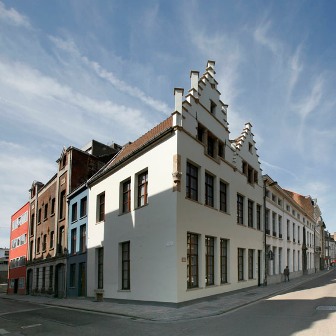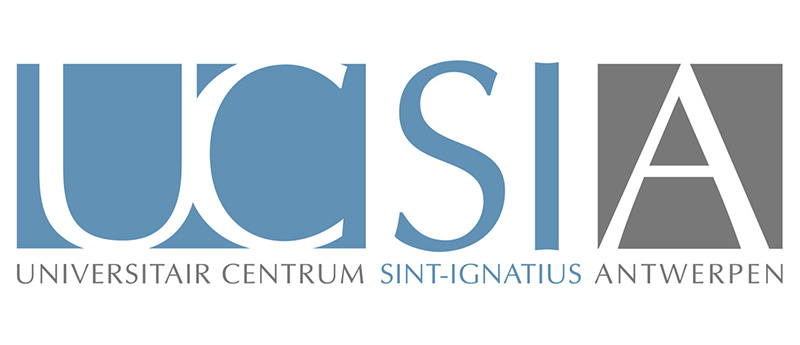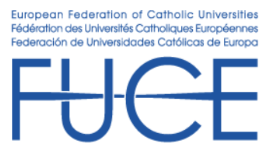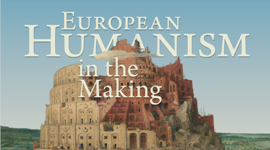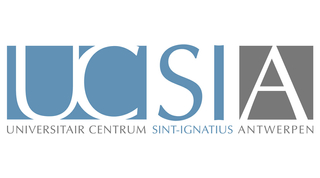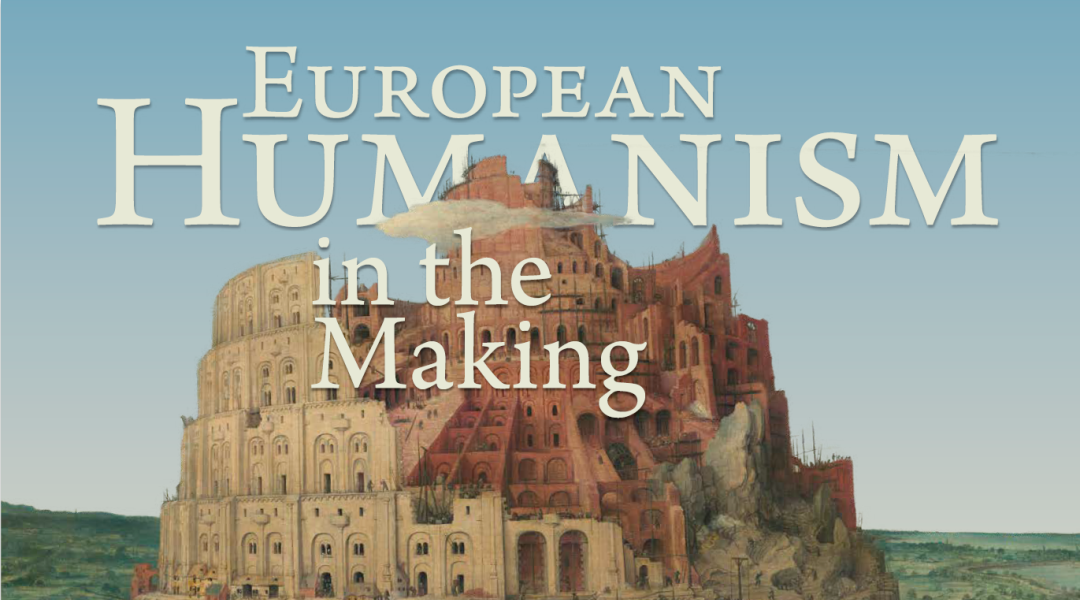
FUCE
European Federation of Catholic Universities
UCSIA organizes the international Summer School on ‘European Humanism in the Making’ for the European Federation of Catholic Universities.
The programme consists of the following five modules, structured in two parts:
PART I – Historical and Cultural Roots: Implications for Europe Today
- Contribution of History to European Consciousness
- Literature, the Arts, Translation and European Identity
- Exploring the Complexities of Modernity:
The Intersection of European Enlightenment and Islamic Humanist Legacies
PART II – Social and Political Construction: Implications for the Future of Europe
- European Social Humanism
- Creative Leadership & Civic Engagement in Action
Courses
Courses I, II and III form an essential basis for understanding how facts and fiction shape a mental geography with real impact in the world and how this legacy needs to be reclaimed and critically reinterpreted in light of the future.
Courses IV and V are inseparable from one another in their focus on the social and political dimensions of Europe, inviting a constructive reflection about the European model we want to build. It helps students to acquire a ‘mentality of social responsibility’ within European humanism, a new kind of citizenship that can help to overcome these challenges and contribute in an active way to an advanced European humanism, becoming active agents of change.
Course I – Contribution of History to European Consciousness
Sarah Durelle-Marc is Associate Professor at the Law Faculty of the Catholic University of Lille
Course I focuses on the large unfolding idea of Europe, since the middle ages to the 19th century, and how it grew facing the rival civilization of Islam, outside and inside the European borders and the general evolution of the European 20th century, a highly concentrated period of inner adversities contrasting with generous hopes, tensions between humanism and its various enemies, and opposing forces of destruction and creation, regression and progress, darkness and light.
The course outline starts from historical roots, over the development of European consciousness and the articulation of peace and European consciousness, to institution building for European integration. It culminates in the question of how a European identity may be institutionally translated in favour of peace and shared values for a politically concerted project.
Course II – Literature, the Arts, Translation and European Identity
Course II focuses on how literature and the arts have built their own European narratives. Whereas political, social, economic and financial issues seem to be ‘at the heart’ of Europe and the European Union, the cultural dimension appears to be a matter of national, regional or even local belonging. When it comes to fiction and literature such national binding is said to be even more obvious due to the language differences which characterize Europe. However, reducing culture and literature to its national dimensions means ignoring its intercultural and global projection. Literary history is full of multinational exchange and rarely been identified as such.
Europe is built by stories. From the first Greek tales to the last published novel, they form a conjunction of collective narrations that constitute our identity, our values and our mission. We, as citizens of a larger entity, contribute with our stories to the generation of the great European narrative. Knowing our personal story and learning to transform it helps us to give meaning to our personal and common life.
Peter Hanenberg is Professor for German and Culture Studies at Universidade Católica Portuguesa in Lisbon and Vice-Rector for Research and Innovation and Director of CADOS, Católica Doctoral School
Course III – Exploring the Complexities of Modernity: the Intersection of European Enlightenment and Islamic Humanist Legacies
Course III aims to train students in historiographical consciousness by exploring the conflicting narratives between European Enlightenment and Islamic humanist legacies and outlooks. While the two concepts of Western and Islamic humanism are based on different philosophical precepts, their fields of action are the same, which has led to the historical process of modernity and paved the way to the global perspectives that shape our modern world.
This course aims to challenge students’ preconceptions and broaden their perspectives on the multifaceted interactions between European and Islamic cultures, as well as science and religion, which have played a significant role in shaping modernity. By critically analyzing historical and contemporary issues, students will be encouraged to engage in cross-cultural dialogue and develop a deeper understanding of the diverse perspectives that shape our modern world, particularly in the fields of science, philosophy, and religion.
Course IV – European Social Humanism
Course IV is designed to arouse students’ curiosity and interests about the values that have been building the European people over time. European humanism can be understood as a coherent set of values and ideals which have shaped not only a specific vision of the world, but also a civilization characterized by peculiar social and institutional forms. Catholic social teaching is part of this humanistic social tradition and the result of the encounter between the Gospel and the different cultures which have shaped Europe. It is worthwhile to take a critical ethical look at the practical implementations of this same tradition over time towards ‘an integral ecology and the full development of humanity’.
European values are being continually constituted within a particular socio-political context. What values and ideals inform the social structures of European society? What is the place of Catholic Social Teaching in European Social Humanism? Do we need a new social contract?
Michael Shortall is Lecturer in Moral Theology and Dean of Postgraduate Studies at St.-Patrick’s Pontifical University, Maynooth, Ireland
Course V – Creative Leadership and Civic Engagement in Action
Fernando Ariza is Professor of Spanish Literature at the CEU San Pablo University in Madrid, novelist and literary critic
Course V completes the overall purpose of the programme: on the one hand, it recalls the European identity (its roots, spirit, history, and effects on European civilization), and on the other, it reflects on how to foster this identity among young Europeans by showing its potential for integration, solidarity, social responsibility, in respect of diversity. It tries to put into practice this European humanism and translate it to the contemporary context. Special attention will be paid to the values that conform Europe and the way they are developed individually in the different cultures.
The course aims to help students to discover their social potential as a leader of social change in their own communities (through leadership exercises and experiential learning) and provides them with the motivation to take on their role as a citizen (community learning and service-learning practice). It will connect with the students’ own work during the course in completing their personal ‘travelogues’.
History
AI Remaking Humanism?
FUCE Summer School
1-5 July 2024
European Humanism in the Making
FUCE Summer School
3-7 July 2023
European Humanism in the Making
FUCE summer school
4-8 July 2022
Organisers
UCSIA vzw
University Centre Saint-Ignatius Antwerp
FUCE
European Federation of Catholic Universities
Contact
Barbara Segaert, Scientific Coordinator, UCSIA
T | +32 (0) 3 265 49 60
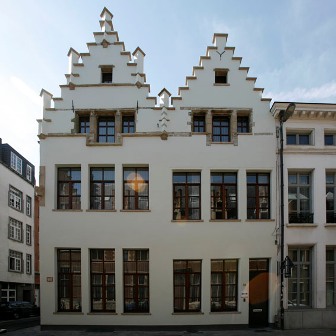
UCSIA
Koningstraat 2
B-2000 Antwerpen
info@ucsia.be
Tel. +32 (0)3 265 49 60
Voorlopige locatie tijdens de renovatiewerken:
Blindestraat 14, 2000 Antwerpen
